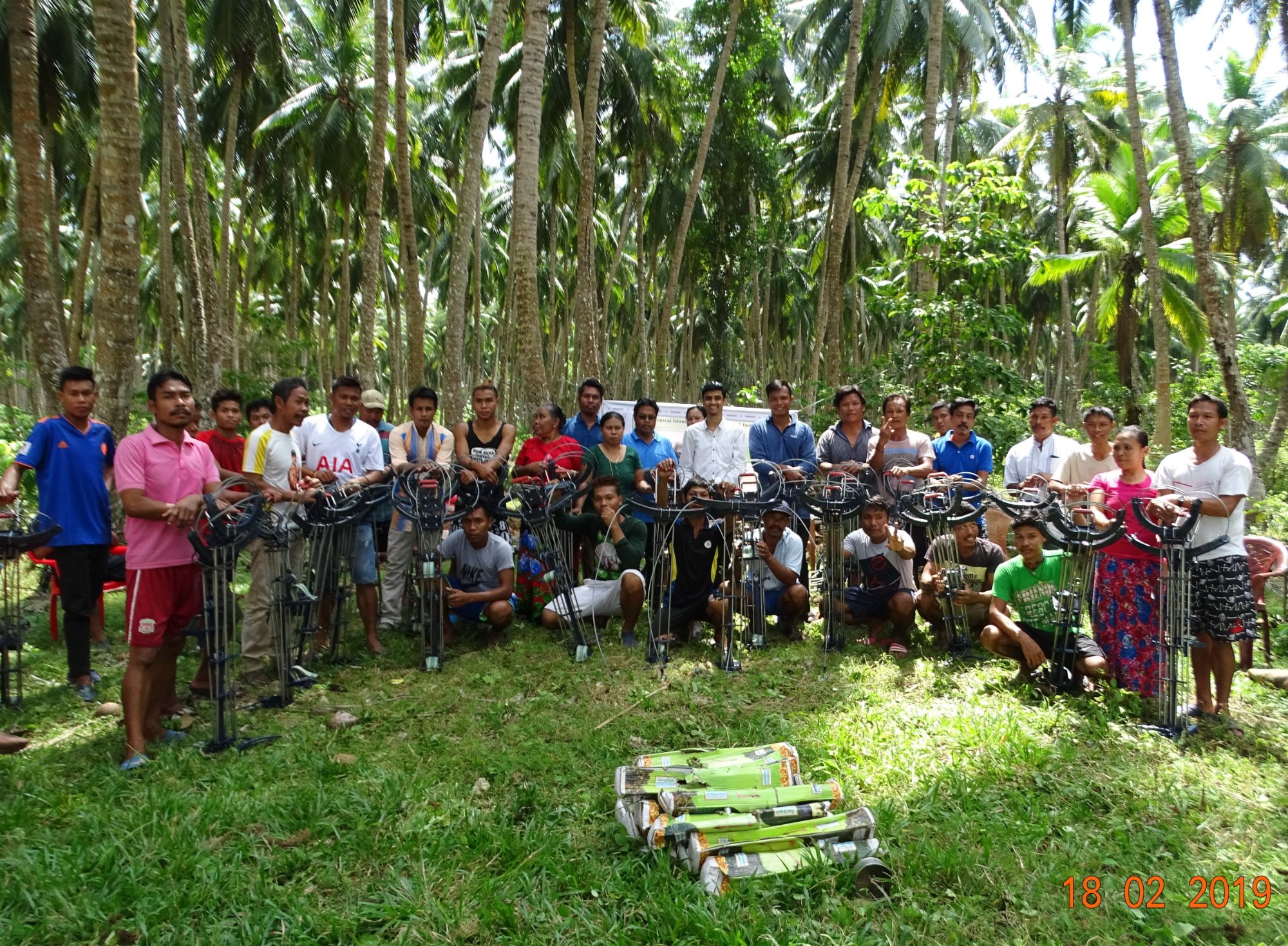
Nicobarese tribes
Village : Harminder Bay, Little Andaman Island


Nicobarese tribes
Village : Harminder Bay, Little Andaman Island
Coconut is indispensible in day to day life of Nicobarese tribe of Andaman and Nicobar Islands. Coconut kernel and oil are mainly used in several culinary preparations of tribal people, while tender coconut is also relished by them. However, systematic coconut farming is rarely adopted by the tribal communities and many a times, only fallen nuts are collected. Except for occasional harvesting of nuts from the palms, no intercultural operations are generally adopted by the community. Nicobarese pigs, which are the symbol of prosperity among the Nicobarese tribals, are also found to relish coconuts here. The tribal people also use coconuts to feed the pigs. Traditionally, nuts are harvested by climbing on the palm, followed by manual dehusking using the pointed tool. Coconut dehusking is generally undertaken by tribal men using locally made tools and women are rarely involved in this activity. These operations were causing lot of drudgery to these tribal farmers.
Team of researchers from ICAR-CIARI conducted skill development programmes for the tribal youth. A total of six field demonstrations and hands on trainings on use of coconut climbing devices and dehuskers have been given to tribal farmers since 2016 under the ICAR- All India Coordinated Research Project on Palms Project. During the events, local youth including tribal women actively participated in demonstrations and tried their hands on these devices. Under Schedule Tribe Component (erstwhile tribal sub-plan), coconut climbing devices and dehuskers have been distributed to 225 tribal farmers.
The tribal people named the climbing device as chaklaak considering the sound the device produces while climbing. This christening itself suggests the huge popularity of this device among the tribal farmers. Nicobarese tribal farmers found the devices very useful as they reduce their drudgery while harvesting the nuts. They also indicated that fixing the device on palm before climbing takes some time but tribals generally work in groups in which one person helps in fixing the devices on each palm, while other climbers operate the devices on the palms. Interactions with the participants of various training programmes suggested that they could climb about 30 palms in a day as against about 18 palms per day earlier. Manually operated dehuskers were very handy to be used even by the women folks, thereby empowering them.
Though the devices are small interventions, they have been instrumental in reducing the drudgery involved in harvesting and postharvest handling of coconut. Through the additional 12 palms climbed per day using the climbing device by a climber, about Rs. 3,600/- could be saved by the tribal farmers. This is not only helping them in harvesting the produce for self-consumption but also for marketing.
Most of the Nicobarese farmers of Harminder Bay are now well versed with the climbing and dehusking operations, which is an indication of skill development through interventions. Distribution of these devices to more farmers would be continued for creating livelihood opportunities for the native inhabitants of these islands.
Contributors : Pooja Bohra and Ajit Arun Waman